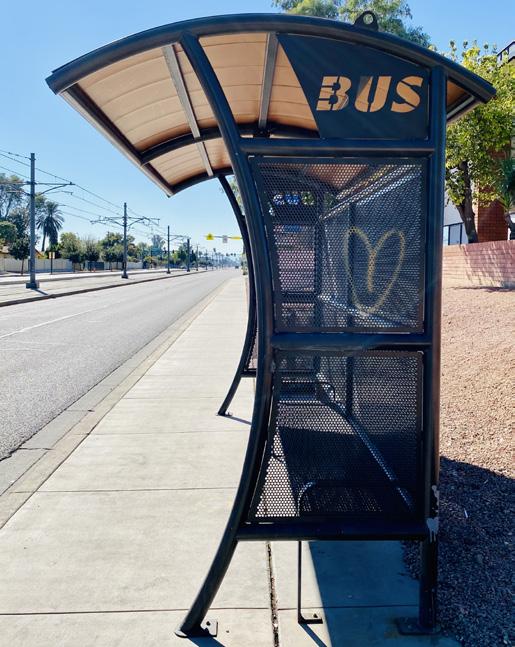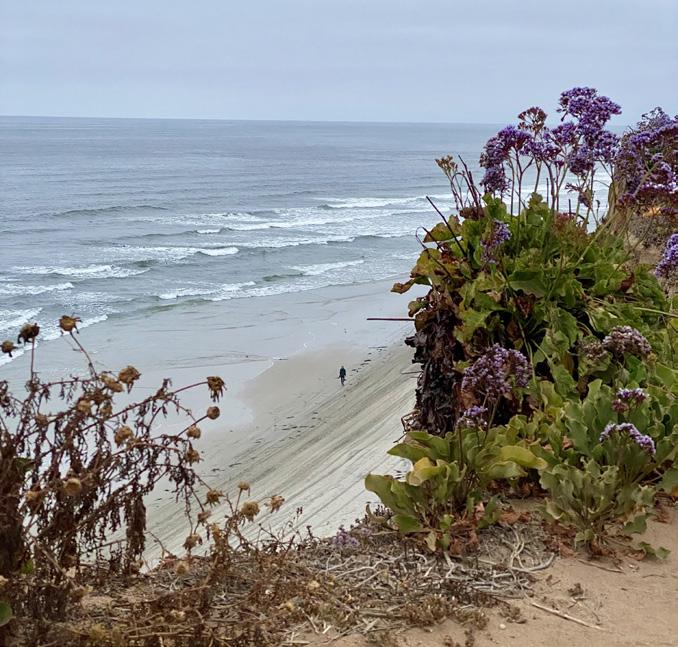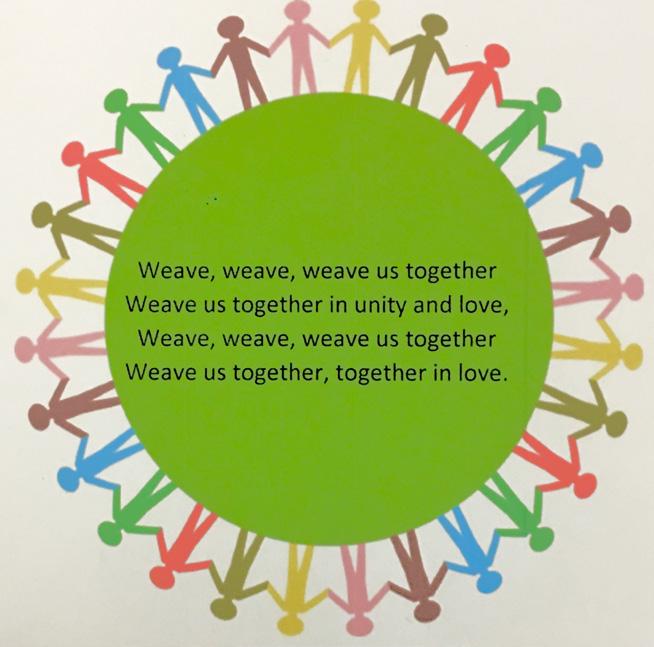daily devotions • for the season of advent 2024


daily devotions • for the season of advent 2024

daily devotions for the season of advent 2024
Every year, we cannot escape the approach of Christmas in our greater culture. Major outlet stores have Christmas trees and decorations available from the middle of August. The allure of “sleigh bells” and “tinsel strands” draws us ever deeper into the celebrations we now expect, not only on December 25 and following for the 12 days of Christmas, but for weeks leading up to that time. The heart of the Christmas story seems to get overshadowed by Santa, reindeer, and elves and Mariah Carey’s “All I Want For Christmas Is You.” While there is nothing wrong with these fun, cultural expressions of our “reason for the season,” they may distract us from the story of God entering human history in the form of a vulnerable baby, born in “little servant shape.”
Preparation, Waiting, Prophecy, Repentance, Justice, God-with-us, Restoration, and Fulfillment: these are the themes of the Advent season, the four weeks leading up to Christmas. This time offers us helpful ways to hear and engage in the story that takes us up to Jesus' birth and why a savior needed to be born “to bring healing to the nations.” This year, our Advent devotional booklet focuses on lectionary texts from the Gospel of Matthew that highlight these themes.
This year, especially, we are looking at the ways that Matthew tells us of God’s promised blessings coming to fruition in the birth of the Messiah.
We invite you to read these daily scripture passages and reflections, either on your own or with family members or friends. Ponder and pray on what you discover. Take a look at the suggestions for activities that inspire you to take part in God’s actively unfolding blessings.
Rev. Mike Hegeman
*Photos taken by Dana Belmonte
december 1 - 7
Matthew 24:36-44
36 “But about that day and hour no one knows, neither the angels of heaven, nor the Son, but only the Father. 37 For as the days of Noah were, so will be the coming of the Son of Man. 38 For as in the days before the flood they were eating and drinking, marrying and giving in marriage, until the day Noah entered the ark, 39 and they knew nothing until the flood came and swept them all away, so, too, will be the coming of the Son of Man. 40 Then two will be in the field; one will be taken, and one will be left. 41 Two women will be grinding meal together; one will be taken, and one will be left. 42 Keep awake, therefore, for you do not know on what day[b] your Lord is coming. 43 But understand this: if the owner of the house had known in what part of the night the thief was coming, he would have stayed awake and would not have let his house be broken into. 44 Therefore you also must be ready, for the Son of Man is coming at an hour you do not expect.


“But about that day and hour no one knows, neither the angels of heaven, nor the Son, but only the Father. ~Matthew 24:36
Reflect: God’s timing is not our own. Deep mysteries surround us all the time. Two thousand years ago, even though some folks were awaiting a savior, a messiah, very few thought it might happen in their own time. Scripture tells us that Jesus, “though he was in the form of God, did not consider equality with God as something to be grasped, but emptied himself, taking the form of a slave, assuming human likeness” (Philippians 2:6-7). Even the Son did not know when in time he would do this. God alone. At the turning of the ages, God knows how things will unfold.
Ponder and Pray: Even though you may want to know something now, what are you willing to wait for, trusting that God knows?


For as the days of Noah were, so will be the coming of the Son of Man. ~Matthew 24:37
Reflect: Noah jumps off the pages of the Bible as a quaint and familiar children’s story character, jovially inviting pairs of animals to share a cramped ark for 40 days or so. The tale of Noah is actually much more serious. In it we see that human beings have done great harm to one another and live far from God’s ideal for them. God decides to start again. This act of flooding the earth is catastrophic and brings tremendous change. Here Matthew tells us that when the “Son of Man” comes, there will be tumultuous change. It will not be what we expect, though, because our God is a gracious God who meets us lovingly in Jesus Christ.
Ponder and Pray: What tools for navigating great change do you possess? How does being a part of a community of faith help you weather these challenges? Who is most vulnerable in your community to such changes and whom can you help?


For as in the days before the flood they were eating and drinking, marrying and giving in marriage, until the day Noah entered the ark, and they knew nothing until the flood came and swept them all away, so, too, will be the coming of the Son of Man. ~Matthew 24:38-39
Reflect: What we hear is that the people in Noah’s day weren’t paying attention. And not only that, in their distracted state of “eating and drinking” they missed what God was up to in the world. Christmas comes around every year, so too does Advent. We do not know how we are distracting ourselves from seeing what God is up to. As the “Son of Man” draws closer, we can trust that he has already come. Jesus lived and walked among us human beings. He healed, chastised, and loved us. Trust in the Son of Man to draw you from distraction to genuine, loving action this Advent season.
Ponder and Pray: Lord, show us the way we keep ourselves distracted with the excesses of life, and miss how you are nudging us to pay attention. What would you have us see? How would you have us prepare for your advent?


When two will be in the field; one will be taken, and one will be left. Two women will be grinding meal together; one will be taken, and one will be left. ~Matthew 24:40-41
Reflect: This text stirs the imagination. How vivid and frightening would it be to be going about your daily routine, and suddenly, the person next to you just disappears, (assuming we’re the ones left behind to wonder!) But this passage isn’t too outrageous. What is being described has happened again and again in human history. Extreme weather and war do this very thing. It’s happening even now all throughout the world. Hurricanes and tornadoes take one house and leave another. Torrential rains and floods take everyone by surprise. In war, targeted bombs take out one building and leave the other. Jesus is just being honest about how unpredictable life can be and will be. Tumultuous change happens throughout the globe every day. We are called to be conscious of how we can be faithful to God through it all, trusting love above all else.
Ponder and Pray: For whom has the “apocalypse” already happened? How would you respond to bring God’s love to that person? Lord, you know when all things will happen. Help us to be a people who live in trust that you are with us through it all.


Keep awake, therefore, for you do not know on what day your Lord is coming. ~Matthew 24:42
Reflect: The scripture tells us to “keep awake,” but we all know that we cannot live without rest and sleep. It surely is a metaphor for being faithful. One of Jesus’ best known parables is about 10 foolish and 10 wise young women. The foolish ones don’t have enough oil for their lamps as they wait out the long night, expecting the return of the Bridegroom. The 10 wise young women do have enough, and this keeps them from missing the time when the Bridegroom returns. We really could live every day as if “the Lord is coming today.” Perhaps hospitality is a more appropriate “readiness” than worry and fret.
Ponder and Pray: How could you practice hospitality in some way each day, until Jesus comes again? How are you ready to receive “angels unaware” at a moment’s notice?


But understand this: if the owner of the house had known in what part of the night the thief was coming, he would have stayed awake and would not have let his house be broken into. ~Matthew 24:43
Reflect: Jesus presses the metaphor. He wants us to get this. Who knows when a thief is going to come? We expend a lot of energy on making sure thieves don’t get into our homes, but are we willing to stay up all night waiting to see if one will? That seems fruitless. Being ready for Jesus’ coming…for his birth among us…or his coming at the end of time…means living out our faith in ways that reflect Jesus’ emptying himself to live among us…a loving servant of all. Stay conscious of every opportunity to live faithfully and lovingly.
Ponder and Pray: Who in your church family or greater community needs to experience the sudden coming of Jesus in your act of kindness and hospitality? In ways could your loving act be like a “thief in the night” (anonymous and startlingly gracious)?


Therefore you also must be ready, for the Son of Man is coming at an hour you do not expect.. ~Matthew 24:44
Reflect: When Jesus told folks about the coming of the Son of Man, they were most likely confused. Why? Well, two thousand years later, we’re still confused, and we’ve had time to think about this. The “coming of the Son of Man” sounds ominous, like a great and calamitous judgment. What if it were an eruption of loving and transformative grace instead? When Jesus told his followers about the future coming of the Son of Man, he had already been born. Jesus had already come. He had preached and taught and healed and forgave and ate with sinners and broken the Sabbath laws. There is more to the story of the coming of the Son of Man than Jesus’ earthly life, surely, but it begins there. How the Son of Man will show up, at the time only God knows, will be consistent with who Jesus has been, in eternity and in his earthly life.
Ponder and Pray: Stop and look at a clock (in whatever form you have available). See how long you can sit and stare at the clock before you feel life’s concerns pressing back in upon you. We cannot sit looking at the clock, awaiting the Advent of the Son of Man. What can you do in the meantime to live as if the kingdom of heaven were already here in our midst?
december 8 - 14
Matthew 3:1-12
In those days John the Baptist appeared in the wilderness of Judea, proclaiming, 2 “Repent, for the kingdom of heaven has come near.”
3 This is the one of whom the prophet Isaiah spoke when he said,
“The voice of one crying out in the wilderness: ‘Prepare the way of the Lord; make his paths straight.’ ”
4 Now John wore clothing of camel’s hair with a leather belt around his waist, and his food was locusts and wild honey. 5 Then Jerusalem and all Judea and all the region around the Jordan were going out to him, 6 and they were baptized by him in the River Jordan, confessing their sins.
7 But when he saw many of the Pharisees and Sadducees coming for his baptism, he said to them, “You brood of vipers! Who warned you to flee from the coming wrath? 8 Therefore, bear fruit worthy of repentance, 9 and do not presume to say to yourselves, ‘We have Abraham as our ancestor,’ for I tell you, God is able from these stones to raise up children to Abraham. 10 Even now the ax is lying at the root of the trees; therefore every tree that does not bear good fruit will be cut down and thrown into the fire.
11 “I baptize you with water for repentance, but the one who is coming after me is more powerful than I, and I am not worthy to carry his sandals. He will baptize you with the Holy Spirit and fire. 12 His winnowing fork is in his hand, and he will clear his threshing floor and will gather his wheat into the granary, but the chaff he will burn with unquenchable fire.”


In those days John the Baptist appeared in the wilderness of Judea, proclaiming, “Repent, for the kingdom of heaven has come near.” ~Matthew 3:1-2
Reflect: John the Baptist is not Santa Claus. Sure, the two men dress in very distinctive ways, and you could quite easily point each of them out in a crowd. The two men herald two very different events. Santa brings the joy of giving and receiving in family and among friends. Santa is anticipated by the young with eyes wide with wonder, and homes are open to the wondrous mysteries that follow along with Santa. John the Baptist is a much starker figure. What he heralds is the turning of the ages, drawing a stark line in the sand for the “before time" and the “after time.” These two times announce the grinding of the cosmic gears in a whole new way. And John’s message is simple and straightforward: Turn from that old “before time” life, and turn toward the new life as the kingdom of heaven erupts on earth.
Ponder and Pray: Spend time looking around today. What are the signs of change happening all around you? What helps you to navigate change. How can you “turn” to a new way of being in the world that reflects God’s kingdom?


This is the one of whom the prophet Isaiah spoke when he said,
“The voice of one crying out in the wilderness: ‘Prepare the way of the Lord; make his paths straight.’ ” ~Matthew 3:3
Reflect: The coming of the Lord that Isaiah prophesied 700 years before John the Baptism seems to take a lot of preparation. The arrival of the Lord signals great shifts: mountains are “made low” and valleys are “lifted up” so that a straight and level highway can be made for the approach of the Lord and his anointed. It seems a daunting task for any single person to “make God’s paths straight.” What kind of cosmic construction crew could we ever hope to join to get ready for God? Thankfully, Jesus comes and shows us the way and he walks us through the wilderness. While the whole universe was preparing for Jesus’ coming into the world, a single voice announced it in the desert, “Christ the guest is on the way.”
Ponder and Pray: In what ways can you make yourself, your family, your community ready for God? Look around your home and ask yourself, is this a place where Jesus would come as a guest? Make some change in preparing for God’s arrival, no matter how small.


Now John wore clothing of camel’s hair with a leather belt around his waist, and his food was locusts and wild honey. Then Jerusalem and all Judea and all the region around the Jordan were going out to him, and they were baptized by him in the River Jordan, confessing their sins. ~Matthew 3:4-6
Reflect: Look at where this passage ends: baptism. Before that was the confessing of sins. Before that was the “going out.” And before that was the herald of God’s good news: the coming of God’s anointed one. We’re used to baptism. It doesn’t seem radical. We practice “forgiveness of sins” every Sunday. We may even “go out of our way” to meet Jesus, if it’s convenient enough. But things get pretty strange when we look at the messenger. John is not an easy figure to deal with. He certainly wouldn’t make it onto the cover of a church promotional flier. God’s announcement of salvation doesn’t always come in expected ways.
Ponder and Pray: In what surprising and unexpected ways has God’s message of redeeming love come to you? Tell someone about one of God’s surprises in your life.


But when he saw many of the Pharisees and Sadducees coming for his baptism, he said to them, “You brood of vipers! Who warned you to flee from the coming wrath? ~Matthew 3:7
Reflect: No one likes to be “convicted of sin,” being called out for one’s shortcomings and failings. In the 12-Step program the fifth “step” is “We admitted to God, to ourselves, and to another human being the exact nature of our wrongs.” This is a powerful tool in one’s healing from addiction or any other “sin” that separates us from God and one another. The thing is, we all usually like to come to a realization of our wrongs on our own. Nobody likes someone telling us the “exact nature of our wrongs.” John the Baptist played a very important role in advent of the Lord’s anointed. Who would hear the message “repent” (turn; change your mind/actions) if they didn’t know what they were doing was wrong? John’s words stung then; they may sting now. In getting ready to turn, perhaps we all need convicting.
Ponder and Pray: Imagine you went out to hear a dynamic if not controversial preacher, who at some point looks right at you and says, “What do you need to do to get ready for God?” How would you respond? Who could help you make faithful and loving changes in your life?


Therefore, bear fruit worthy of repentance, and do not presume to say to yourselves, ‘We have Abraham as our ancestor,’ for I tell you, God is able from these stones to raise up children to Abraham. ~Matthew 3:8-9
Reflect: John the Baptist is never subtle. He tells it like it is. “God can make descendants for Abraham from the very stones. Don’t take pride in ancestry or any other of society’s status markers. One thing alone gives you standing before God.” What is that standing? Let your turning toward God in faith bear the fruits of “love, joy, peace, patience, kindness, generosity, goodness, faithfulness, and selfcontrol.” John isn’t tactful enough to say, “I hope you will at least try to bear this fruit. You’re going to need help though.” Our help to bear such fruit comes from the one who comes after John, the one who shares his Spirit with us, so that we can bear fruits of our turning to God.
Ponder and Pray: Consider the “fruit” that you have born in this life. What joy have you shared? Where have you given love undeservedly? How have you been kind and patient when these were not warranted? In what areas of your life do you need greater self-control? Consider this pondering an act of repentance (turning). Turn a little more in your life.


Even now the ax is lying at the root of the trees; therefore every tree that does not bear good fruit will be cut down and thrown into the fire. ~Matthew 3:10
Reflect: The turning of the ages that John heralds brings dramatic change. In the Lord of the Rings, one of the greatest crimes that happens is the willful and malicious destruction of ancient trees, specifically to fuel an apocalyptic war machine. Felling of trees is never done lightly. John announces that God is willing to do it, though, to usher in what is new. This is more than “pruning” unproductive branches, as one might do in a thoughtful self-inventory of one’s “shortcomings.” John’s vision goes along with the mountains that will be made low and the valleys that will be lifted up. In making the Lord’s path straight, a few trees may come down. In each of our lives, big change may come with the onset or renewal of faith. Jesus’ advent heralds a gracious “turning of the ages,” where our intentions are purified and sanctified in his love.
Ponder and Pray: What “trees” in your life are ready to come down to make way for God? What prayer could you write or utter to relinquish such “trees” to God, in the hope that new growth will bring a richer harvest of the fruits of the Spirit?


“I baptize you with water for repentance, but the one who is coming after me is more powerful than I, and I am not worthy to carry his sandals. He will baptize you with the Holy Spirit and fire. His winnowing fork is in his hand, and he will clear his threshing floor and will gather his wheat into the granary, but the chaff he will burn with unquenchable fire.” ~Matthew 3:11-12
Reflect: John doesn’t let up. I can’t imagine a church today where he’d be welcomed unreservedly. He certainly shakes things up before Jesus enters the scene. John announces change. The pictures he paints uses familiar earthly realities that everyone listening to him would know: winnowing forks, threshing floors, wheat, chaff, granaries and fire. Most of these things are not part of our daily reality. Perhaps today, John would talk to us about recycling plants, where everything is sorted, some plastics are saved, some are thrown away. Whatever the imagery, the advent of God in Jesus signals dramatic change.
Ponder and Pray: In what ways have you experienced dramatic changes in your faith life? Did any of those changes come early in your encounters with God? Did these changes draw you closer to God, or chase you away for a while? Pay attention on this day to the kinds of “changes” that are on the wind. Which ones give you a sense of dread? What excites you and gives you hope? Imagine how Jesus will come into your midst and walk beside you in times of change.
december 15 - 21
Matthew 11:2-15
2 When John heard in prison what the Messiah[a] was doing, he sent word by his[b] disciples 3 and said to him, “Are you the one who is to come, or are we to wait for another?” 4 Jesus answered them, “Go and tell John what you hear and see: 5 the blind receive their sight, the lame walk, those with a skin disease are cleansed, the deaf hear, the dead are raised, and the poor have good news brought to them. 6 And blessed is anyone who takes no offense at me.”
Jesus Praises John the Baptist
7 As they went away, Jesus began to speak to the crowds about John: “What did you go out into the wilderness to look at? A reed shaken by the wind? 8 What, then, did you go out to see? Someone[c] dressed in soft robes? Look, those who wear soft robes are in royal palaces. 9 What, then, did you go out to see? A prophet?[d] Yes, I tell you, and more than a prophet. 10 This is the one about whom it is written,
‘See, I am sending my messenger ahead of you, who will prepare your way before you.’
11 “Truly I tell you, among those born of women no one has arisen greater than John the Baptist, yet the least in the kingdom of heaven is greater than he. 12 From the days of John the Baptist until now, the kingdom of heaven has suffered violence,[e] and violent people take it by force. 13 For all the Prophets and the Law prophesied until John came, 14 and if you are willing to accept it, he is Elijah who is to come. 15 Let anyone with ears listen!


When John heard in prison what the Messiah was doing, he sent word by his disciples and said to him, “Are you the one who is to come, or are we to wait for another?” ~Matthew 11:2-3
Reflect: We’ve jumped through quite a bit of story here. Just last week John was preaching by the Jordan, awaiting Jesus’ arrival on the Lord’s highway. Now John’s in prison. What happened? Well, after John encountered Jesus and baptized him in the Jordan, and Jesus went about preaching the good news of the Kingdom of Heaven, John went on preaching in his usual way: getting powerful people upset. He criticized the king for marrying his dead brother’s wife, and she wasn’t too happy about that. She convinced the King to arrest John in the hopes of shutting down his abrasive and inconvenient ministry. From prison, John begins to wonder about the man whom he baptized. “Is this guy the real deal?” Any one of us may come to this place in our own lives, asking whether the faithful trust we’ve put in Jesus was worth it. When our faith runs dry, we may begin to look elsewhere for answers.
Ponder and Pray: What has ever drawn your trust away from God or Jesus? What “prisons” in your life have caused you doubt? What prayer do you think John prayed each night in his prison?
monday, december 16


Jesus answered them, “Go and tell John what you hear and see: the blind receive their sight, the lame walk, those with a skin disease are cleansed, the deaf hear, the dead are raised, and the poor have good news brought to them. ~Matthew 11:4-5
Reflect: In Luke’s Gospel we hear a riveting story about Jesus entering the synagogue in Capernaum, being handed the scroll of Isaiah, and opening it up he reads, “The Spirit of the Lord is upon me, having anointed me to bring good news to the poor, release to those who are captive, sight to the blind, and to set free those who are oppressed.” Jesus’ ministry looks like what the ancient prophet said would typify the Anointed One’s calling and mission. Jesus tells John, remember what was promised, and have faith.
Ponder and Pray: What message from God do you most need to hear that your faithful trust in God’s loving and anointed Savior has been well-placed? Who in your life needs reassurance that when faith runs thin, others are there to nourish and strengthen?


And blessed is anyone who takes no offense at me.” ~Matthew 11:6
Reflect: We’re used to hearing a whole list of “blessed are they who…” sayings from Matthew’s Gospel: “Blessed are the peacemakers; blessed are the poor in spirit; blessed are those who mourn, etc.” We aren’t really used to hearing, “Blessed are they who take no offense at me.” It seems pretty simple. “What about all those hard-working disciples who suffer for the kingdom?! Shouldn’t they be more blessed than those who just off-handedly take “no offense” at you, O Lord?” Jesus is saying something deeper here though. We know that John the Baptist offended a lot of people. Jesus did too. Jesus broke some fundamental laws, as far as the religious authorities saw it. And these law breaches got him killed; or at least, it was those who took offense at Jesus who brought about his death. Taking no offense at Jesus may have taken more work than first glance tells us. It may have been a rare occurrence not to get all self-righteous with Jesus. He really did shake things up. Go ahead and let those who are not offended by Jesus be blessed. In God’s economy, there are enough blessings to go around.
Ponder and Pray: Be honest with yourself. Who is it that you’d wish God would withhold a blessing from? Then consider that maybe that blessing is the very thing that person might need to “turn” to God. Pray for that person.


As they went away, Jesus began to speak to the crowds about John: “What did you go out into the wilderness to look at? A reed shaken by the wind? What, then, did you go out to see? Someone dressed in soft robes? Look, those who wear soft robes are in royal palaces. ~Matthew 11:7-8
Reflect: The kingdom of God comes in surprising and unexpected ways. Even in Jesus’ day, he says, “Were you drawn in by a sleek and stylish televangelist? Were you impressed with a fancy and technologically advanced sanctuary?” The answer he hopes for is “no.” Jesus appears to say, “Even though John’s words weren’t comforting or conciliatory, you went anyway and heard the truth.” We are each called to go to where the Gospel is breaking into this world among “the least” of the world.
Ponder and Pray: Where have you encountered God in unexpected places or people? Listen to God’s nudging: where is God calling you to find the Gospel truth in stark ways and amid surprising places and people?


What, then, did you go out to see? A prophet? Yes, I tell you, and more than a prophet. This is the one about whom it is written, ‘See, I am sending my messenger ahead of you, who will prepare your way before you.’ ~Matthew 11:9-10
Reflect: Televangelists have found their niche market in American culture. They seem here to stay. Some have done their work with integrity and some have famously not done so. Jesus today might say, “What did you turn your TV on to see? A spectacle? A miracle worker? The greatest religious showman out there?” Prophecy is serious business, and not the “business” of those less-than-scrupulous televangelists. The kind of prophecy Jesus is talking about is that of John the Baptist standing out in the wilderness, not only announcing the turning of the ages, but also what it means for each person who dares or cares to enter God’s kingdom to “turn” his or her life, so that the kingdom is inescapably and palpably preset.
Ponder and Pray: What are the qualities of the person who most gifted you with an inescapable impression of the kingdom of God? Were humility and wonder among those qualities? In what ways can you embody the kind of qualities about which Jesus would say, “Go and talk to that person. You’ll get the real deal”?


“Truly I tell you, among those born of women no one has arisen greater than John the Baptist, yet the least in the kingdom of heaven is greater than he. From the days of John the Baptist until now, the kingdom of heaven has suffered violence, and violent people take it by force.
~Matthew 11:11-12
Reflect: What does it mean to be least in the kingdom of God? The images we get throughout scripture are those of gracious equality in the kingdom. Consider what Paul the Apostle said to the Galatians, “For those who are Christ Jesus, there is no longer Jew or Greek, slave or free, male and female, for all are one.” The “least in the kingdom” must be an outward perspective, looking in. The world still judges those in the kingdom, but we are to see one another not in terms of greater or lesser…but as those who give mutual support during times of suffering and outward persecution.
Ponder and Pray: In what ways might you still think of someone as lesser, especially in God’s kingdom? How can you shift your perspective to see others as equals, as one in Christ? This may take some creativity and even some “turning” from the old ways in which we have operated.


For all the Prophets and the Law prophesied until John came, and if you are willing to accept it, he is Elijah who is to come. Let anyone with ears listen! ~Matthew 11:13-15
Reflect: With the approach of the celebration of Jesus’ birth, we hear a lot about “prophecy.” We looked to the writings of the Hebrew scriptures to catch a glimpse of the patterns God had been setting in motion centuries before Jesus’ stepping onto the world’s stage. A literary scholar might call this pattern “foreshadowing.” Elijah is a foreshadowing of John, and the Suffering Servant of Isaiah is a foreshadowing of Jesus and his ministry. We are called on to employ all our senses to look for the patterns God has set up, so that we might see, hear, and know that Jesus is Emmanuel, “God with Us.”
Ponder and Pray: In what ways can you use your five senses to tune into God’s activity in this world? What do your eyes see? What do you hear? What can you taste, touch and smell that allows you to “know the goodness of the Lord in the land of the living?
december 22 - 25
Matthew 1:18-25
18 Now the birth of Jesus the Messiah took place in this way. When his mother Mary had been engaged to Joseph, but before they lived together, she was found to be pregnant from the Holy Spirit. 19 Her husband Joseph, being a righteous man and unwilling to expose her to public disgrace, planned to divorce her quietly. 20 But just when he had resolved to do this, an angel of the Lord appeared to him in a dream and said, “Joseph, son of David, do not be afraid to take Mary as your wife, for the child conceived in her is from the Holy Spirit. 21 She will bear a son, and you are to name him Jesus, for he will save his people from their sins.” 22 All this took place to fulfill what had been spoken by the Lord through the prophet:
23
“Look, the virgin shall become pregnant and give birth to a son, and they shall name him Emmanuel,” which means, “God is with us.” 24 When Joseph awoke from sleep, he did as the angel of the Lord commanded him; he took her as his wife 25 but had no marital relations with her until she had given birth to a son,[k] and he named him Jesus.


Now the birth of Jesus the Messiah took place in this way. When his mother Mary had been engaged to Joseph, but before they lived together, she was found to be pregnant from the Holy Spirit. ~Matthew 1:18
Reflect: Now we are getting closer to the Christmas story with which we’re most familiar: Mary, Joseph and the Holy Spirit. Most likely, we know the way that the Gospel of Luke tells the story; you know the one, where an angel appears to Mary and lets her know that she will bear a child who will be the Messiah! From Luke we also hear about how the angels appear to shepherds, filling the cosmos with heavenly singing. Matthew’s Gospel, however, leaves the angel out of how Mary finds out that she is pregnant. The stories from Luke and Matthew parallel each other, but they are not the same. We can’t help weave the two accounts of Jesus’ birth together. Having two accounts of the birth of the Messiah lets us know that no one way of telling Jesus’ story is ever sufficient. There are always more ways of looking at and being encountered by God’s wondrous story of grace and love.
Ponder and Pray: Consider how your own faith story has changed over the years. By God’s grace, we grow out of one story and into another, larger and more encompassing story. In what ways are you willing for your own story to grow into something larger? Give thanks to God for all the possibilities.
monday, december 23


Her husband Joseph, being a righteous man and unwilling to expose her to public disgrace, planned to divorce her quietly. But just when he had resolved to do this, an angel of the Lord appeared to him in a dream and said, “Joseph, son of David, do not be afraid to take Mary as your wife, for the child conceived in her is from the Holy Spirit. ~Matthew 1:19-20
Reflect: We began this Advent devotional with the idea that Matthew’s Gospel tells us the story of the advent of God’s ‘promised blessing.’ We’ve heard about how the prophet Isaiah foretold how the coming Messiah would embody justice and redemption and reconciliation and the transformation for all that falls short of God’s heavenly kingdom. And we’ve heard about how Jesus is promised to be the center of God’s redeeming and transforming work. Joseph had no idea what he was participating in when he agreed to take Mary as his wife, shielding her from scandal, as God worked through her.
Ponder and Pray: In what ways have you said “yes” to something not knowing where that would lead you? Consider the ways God has worked through you for the greater good, how you have been included in God’s plan of “promised blessing.” Give thanks to God for the unfolding of blessing long before we are ever aware of how things will turn out.


But just when he had resolved to do this, an angel of the Lord appeared to him in a dream and said, “Joseph, son of David, do not be afraid to take Mary as your wife, for the child conceived in her is from the Holy Spirit. She will bear a son, and you are to name him Jesus, for he will save his people from their sins.” 22 All this took place to fulfill what had been spoken by the Lord through the prophet: “Look, the virgin shall become pregnant and give birth to a son, and they shall name him Emmanuel,” which means, “God is with us.” ~Matthew 1:20-23
Reflect: When we read this passage in English, we miss an essential play on words. Not even the first readers of this passage would have heard it either (because the text is written in Greek and not Hebrew.) What the angel knows is that the name “Jesus” means “God is our savior. God is our deliverer, our redeemer, our emancipator, and our healing.” It’s all in the name. His name announces who Jesus is. Who else but someone named Jesus would be the one through whom God reconciles all things? And part of that miracle is that Jesus is born a vulnerable human being. Within him was to be the greatest gift the world could receive. When the angel tells Joseph this, things are set in motion that cannot be reversed: the promised blessing is on its way.
Ponder and Pray: Consider the blessings you have received through the life of faith. What do you associate with the name “Jesus”? List for yourself the ways that God’s promised blessings come to all of us in this “little servant shape” we call Jesus.


When Joseph awoke from sleep, he did as the angel of the Lord commanded him; he took her as his wife but had no marital relations with her until she had given birth to a son, and he named him Jesus. ~Matthew 1:24-25
Reflect: And now the blessing promised long ago has come, and the first to experience it are Mary and Joseph. They have acted as the angel told them. They are being faithful. This day of birth is a day to celebrate! There will be difficult days ahead, but for now, before the Wise Men show up, this day is just for this family. Did they spend it wondering in awe and amazement? A babe has been born who brings light into the world! The angels knew…and now we know.
Ponder and Pray: On this Christmas day, give thanks for the blessings you have. Look around you and marvel at the light of God that lies hidden in all things. Pray for a world that still “groans and yearns in eager longing” to experience the fullness of God’s amazing grace.

Gratitude is about naming a gift from God. In the Bible we often see people giving thanks and building an altar to the Lord to remind themselves of the places that God has been in their lives. The hope is they remember where God blessed them in the past so that no matter what is happening in the present they know God will bless them again.
We all know being grateful is important but it often gets set aside and the challenges of our days become highlighted. We get it, it happens to us too, which is why we are using this season to practice gratitude, reconnect with God, and find the altars in our life. Living a life centered around gratitude is said to help us be present, happier and more thankful. On the pages that follow, answer one of the following questions each day of Advent. Giving thanks can happen at a designated time each day or be spur of the moment. We hope you find many ways this season to give thanks for gifts God gave you.

A great way to bring things that you’re grateful for to the forefront of your mind is by asking yourself questions. At the end of each day, ask yourself the following four questions:
What touched me today?
Who or what inspired me today?
What made me smile today?
What’s the best thing that happened today?